Resource Scholars & Experts
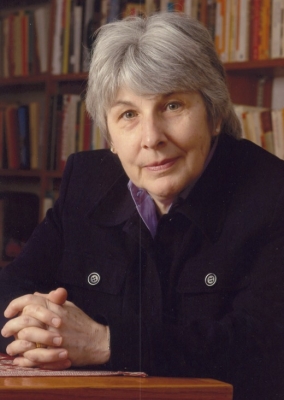
Sheila Fitzpatrick
Sheila Fitzpatrick is a Professor at Australian Catholic University, Melbourne, and Distinguished Service Professor Emerita of the University of Chicago. Her most recent books are Lost Souls: Soviet Displaced Persons and the Birth of the Cold War (2024), The Shortest History of the Soviet Union (2022), and White Russians, Red Peril: A Cold War History of Migration to Australia (2021). The Death of Stalin will be published in April 2025.
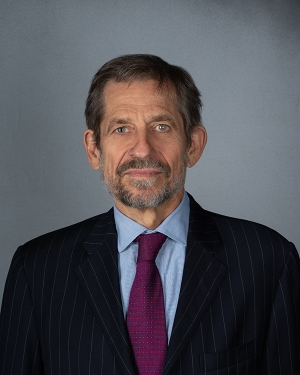
Thomas Graham
Thomas E. Graham is a distinguished fellow at the Council on Foreign Relations. He is a cofounder of the Russian, East European, and Eurasian studies program at Yale University and sits on its faculty steering committee. He is also a research fellow at the MacMillan Center at Yale, where he teaches a course on U.S.-Russian relations. Graham was special assistant to the president and senior director for Russia on the National Security Council staff from 2004 to 2007, during which he managed a White House-Kremlin strategic dialogue. He was director for Russian affairs on the staff from 2002 to 2004.
Graham was a Foreign Service officer for fourteen years. His assignments included two tours of duty at the U.S. Embassy in Moscow in the late Soviet period and in the middle of the 1990s during which he served as head of the political internal unit and acting political counselor. Between tours in Moscow, he worked on Russian and Soviet affairs on the policy planning staff at the U.S. Department of State and as a policy assistant in the office of the under secretary of defense for policy.
Graham serves on the Kennan council of the Kennan Institute of the Wilson Center and on the advisory board of Russia Matters, a project of the Harvard Kennedy School’s Belfer Center for Science and International Affairs with the goal of enhancing the understanding of Russia among policymakers and the interested public. He also serves on the editorial board of the US-Canada Journal of the USA-Canada Institute of the Russian Academy of Sciences.
Graham holds a BA in Russian Studies from Yale University, an MA in History, and a PhD in Political Science from Harvard University.
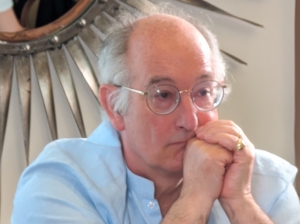
Dominic Lieven
Professor Dominic Lieven graduated first in Cambridge University’s class of 1973 with a BA in History and was a Kennedy Scholar at Harvard in 1973-1974. Subsequently, he has been, inter alia, a Humboldt Fellow in Germany and a visiting professor at Tokyo University and Harvard. He received his PhD from the School of Slavonic Studies at University College London in 1978.
Professor Lieven was a lecturer, senior lecturer and professor at the London School of Economics (LSE; 1978-2011). He became a fellow of the British Academy in 2001. He was head of the Department of Government from 2001 to 2004 and head of the Department of International History from 2009 to 2011. From there he was a senior research fellow at Trinity College, Cambridge (2011-2019) and has been an honorary fellow since 2019. In 2014, he was awarded the Order of Friendship by the Russian Federation.
He is currently a visiting professor in the Department of International History at LSE. Professor Lieven is also the chair of the board of the Paulsen Programme at LSE, hosted by the Department of International History at LSE.
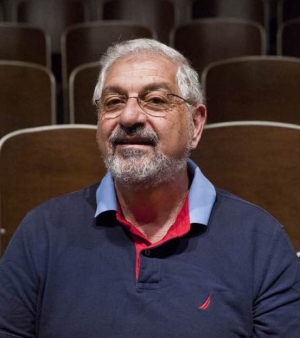
Ronald Suny
Ronald Grigor Suny is William H. Sewell, Jr. Distinguished University Professor of History and Professor of Political Science Emeritus at the University of Michigan and Emeritus Professor of Political Science and History at the University of Chicago. He was the first holder of the Alex Manoogian Chair in Modern Armenian History at the University of Michigan, where he founded and directed the Armenian Studies Program. He is author of The Baku Commune: Class and Nationality in the Russian Revolution; The Making of the Georgian Nation; Looking Toward Ararat: Armenia in Modern History; The Revenge of the Past: Nationalism, Revolution, and the Collapse of the Soviet Union; The Soviet Experiment: Russia, the Soviet Union and the Successor States; “They Can Live in the Desert But Nowhere Else”: A History of the Armenian Genocide; Red Flag Unfurled: History, Historians, and the Russian Revolution; Red Flag Wounded: Stalinism and the Fate of the Soviet Experiment; Stalin: Passage to Revolution:and co-author with Valerie Kivelson of Russia’s Empires. He is currently working on a book on the history of the nation-form and the recent upsurge of exclusivist nationalisms and authoritarian populisms: Forging the Nation: The Making and Faking of Nationalisms.
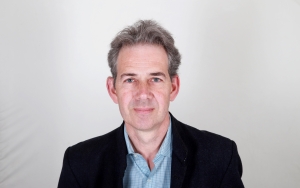
Thomas de Waal
Tom de Waal is a senior fellow with Carnegie Europe, specializing in Eastern Europe and the Caucasus region.
He is the author of numerous publications, most recently The End of the Near Abroad (Carnegie Europe/IWM, 2024). The second edition of his book The Caucasus: An Introduction (Oxford University Press) was published in 2018. He is also the author of Great Catastrophe: Armenians and Turks in the Shadow of Genocide (Oxford University Press, 2015) and of the authoritative book on the Nagorny Karabakh conflict, Black Garden: Armenia and Azerbaijan Through Peace and War (NYU Press, second edition 2013).
From 2010 to 2015, de Waal worked for the Carnegie Endowment for International Peace in Washington, DC. Before that he worked extensively as a journalist in both print and for BBC radio. From 1993 to 1997, he worked in Moscow for the Moscow Times, the Times of London, and the Economist, specializing in Russian politics and the situation in Chechnya. He co-authored (with Carlotta Gall) the book Chechnya: Calamity in the Caucasus (NYU Press, 1997), for which the authors were awarded the James Cameron Prize for Distinguished Reporting.
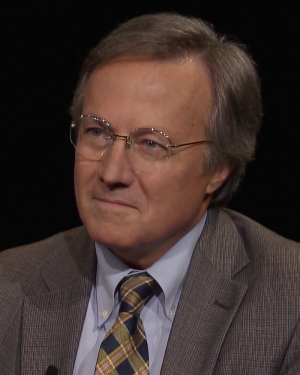
Thomas Blanton
Thomas Blanton is director (since 1992) of the independent non-governmental National Security Archive at George Washington University (https://nsarchive.gwu.edu). He won the 2004 Emmy Award for individual achievement in news and documentary research, and on behalf of the Archive received the George Polk Award in 2000 for “piercing self-serving veils of government secrecy.” His books have been awarded the 2011 Link-Kuehl Prize from the Society for Historians of American Foreign Relations, selection by Choice magazine as “Outstanding Academic Title 2017,” and the American Library Association’s James Madison Award Citation in 1996, among other honors. The National Freedom of Information Act Hall of Fame elected him a member in 2006, and Tufts University presented him the Dr. Jean Mayer Global Citizenship Award in 2011 for “decades of demystifying and exposing the underworld of global diplomacy.” His articles have appeared in Diplomatic History, Foreign Policy, Bulletin of the Atomic Scientists, The New York Times, and the Washington Post, among many other journals. A graduate of Harvard University, where he won the Newcomen Prize in History, he is series editor for the National Security Archive’s online and book publications of more than a million pages of declassified U.S. government documents obtained through the Archive’s more than 70,000 Freedom of Information Act requests.
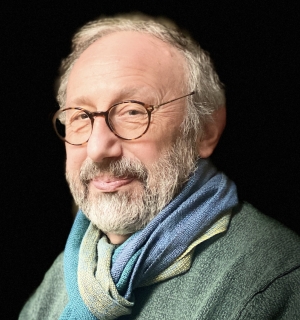
Mark Grigorian
Journalist and author with PhD in Russian linguistics. Worked as a journalist and political analyst in Yerevan until 2002, when he survived an assassination attempt and was forced to move to London, UK. In London he worked for the BBC as a producer and broadcaster in the Russian service. His main areas of expertise included post-Soviet space, specifically Central Asia and Caucasus. In 2014 he moved back to Armenia, where he authored a TV series about the city of Yerevan. In 2017-2018 he was the director of the Public Radio of Armenia. Currently he is the director of the National Museum-Institute of Architecture. He is the author of several books, including Manual for Journalists (2007, in Russian), Yerevan: Biography of the City (2022, in Russian, 2023, in Armenian). He has received multiple awards, including Hellman/Hammett grant “In recognition of courage in the face of political persecution”, 2003. BBC Original Online Journalism Award, 2005.
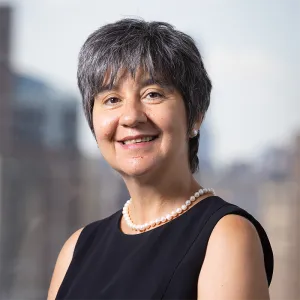
Valentina Izmirlieva
Valentina Izmirlieva is a scholar of Balkan and East Slavic religious and political cultures, with a focus on multi-ethnic and multi-religious empires and their successor states. The topics of her publications range from the medieval societies of the Mediterranean and the Black Sea regions, including Kyivan Rus’, to the post-Soviet cultural space. The recipient of many awards and distinctions, including the Fellowship at the Cullman Center for Scholars and Writers at the New York Public Library, Professor Izmirlieva delivered the inaugural memorial Shevelov lecture of Ukrainian Studies in 2018. She founded and leads Black Sea Networks, a global initiative to investigate the Black Sea as a hub of cultural, political, and historical interest.
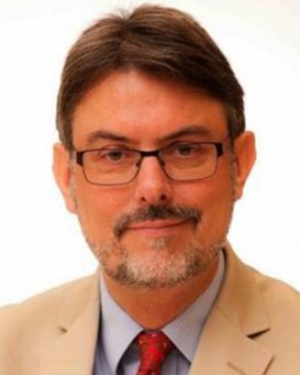
Anatol Lieven
Anatol Lieven is a senior fellow for Russia and Europe at the Quincy Institute for Responsible Statecraft in Washington, DC. He was a professor at Georgetown University in Qatar from 2014 to 2021. He is a member of the academic board of the Valdai discussion club in Russia. He also serves on the advisory committee of the South Asia Department of the British Foreign and Commonwealth Office. He holds a BA and PhD from Cambridge University in England.
His latest book, Climate Change and the Nation State, was published in 2020 with Penguin. An updated paperback edition appeared in 2023.
From 1985 to 1998, Anatol Lieven worked as a British journalist in South Asia, the former Soviet Union, and Eastern Europe, and is author of several books on Russia and its neighbors, including Ukraine and Russia: A Fraternal Rivalry (United States Institute of Peace Press, 1999).
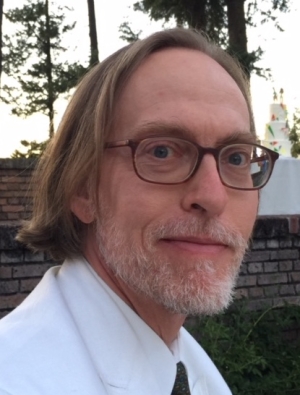
Thomas J. Kitson
Thomas J. Kitson holds a Ph.D. in Russian Literature from Columbia University and has taught Russian literature and culture at Columbia, Montclair State University, and Drew University. He is a leading scholar of the Georgian-Russian avant-garde writer Ilia Zdanevich-Iliazd, having made most of his oeuvre available in English. Kitson’s translation of Iliazd’s masterpiece Rapture (Columbia University Press, 2017) won a Read Russia Prize Special Mention. Other translations of Zdanevich’s prose, poetry and experimental dramas have appeared in Rab-Rab Press and the journal TYPO #7. In 2019, Kitson received a NEA Fellowship to translate Zdanevich’s novelPhiloSophia, which is currently under consideration at New Directions. Another novel by Zdanevich, Letters to Morgan Philips Price, will be published next year by Columbia University Press. Kitson has also convened and participated in scholarly forums exploring Zdanevich’s transnational legacy, and has co-curated exhibitions that foreground Iliazd’s unique typographic experiments. He serves as a juror for the PEN/Heim Translation Fund and for the National Endowment for the Arts.
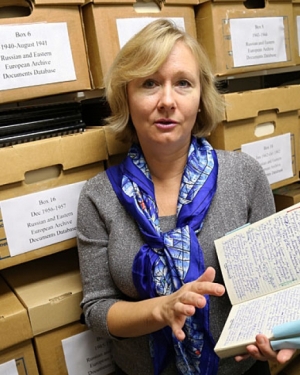
Svetlana Savranskaya
Svetlana Savranskaya is director of Russia programs at the National Security Archive at George Washington University and adjunct professor at American University’s School of International Service. She leads the Cooperative Threat Reduction Program of the Archive, focusing on the Nunn-Lugar initiative and the ongoing challenges of U.S.-Russia relations, and manages the Archive’s work with academics and organizations still inside Russia and those now in exile, including long-standing partnerships with the Memorial Society and the Moscow Helsinki Group. Her books include The Soviet Cuban Missile Crisis: Castro, Mikoyan, Kennedy, Khrushchev, and the Missiles of November (Woodrow Wilson Center Press/Stanford University Press, 2012, with Sergo Mikoyan); “Masterpieces of History”: The Peaceful End of the Cold War in Europe 1989 (Central European University Press, 2010, with Thomas Blanton and Vladislav Zubok); and The Last Superpower Summits: Gorbachev, Reagan and Bush: Conversations that Ended the Cold War (Central European University Press, 2016, with Thomas Blanton). A graduate of Moscow State University, she earned her Ph.D. at Emory University. Her articles have appeared in the Journal of Strategic Studies and the Cold War International History Project Bulletin, and she has authored book chapters for the World Political Forum, the Cambridge History of the Cold War, and many other volumes.

Yuri Slezkine
Yuri Slezkine is a professor of the Graduate School at the University of California, Berkeley; a senior research fellow at St. Edmund College, Oxford; and a member of the American Academy of Arts and Sciences. He has been a fellow at the Hoover Institution, the International Institute at the University of Michigan, the Center for Advanced Study in the Behavioral Sciences, the John Simon Guggenheim Memorial Foundation, and Wissenschaftskolleg zu Berlin. He served as a distinguished visiting professor at Vassar College, an honorary professor at the University of Nottingham, and a visiting professor at the Ludwig-Maximilians University in Munich and Sciences Po in Paris. His book, The Jewish Century (Princeton UP, 2004), has received several awards and has been translated into ten languages. His next book, The House of Government: A Saga of the Russian Revolution (Princeton University Press, 2017), was named among the best books of 2017 by the New York Times, Spectator, the Guardian, the Economist, the London Review of Books, and Le Monde, among others, and has been translated into nine languages. His most recent book is a Latvian-language essay entitled Ivar Smilga and the Russian Epilogue of the Latvian Revolution (Rigas Laiks, 2022).
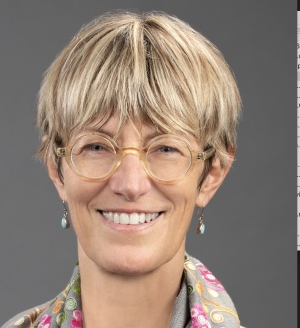
Allison Stanger
Allison Stanger is Middlebury Distinguished Endowed Professor; Co-Director (with Danielle Allen), GETTING-Plurality Research Network, Harvard University; Distinguished Senior Fellow at the James Martin Center for Non-Proliferation Studies, founding member of the Digital Humanism Initiative (Vienna); and an External Professor at the Santa Fe Institute. Stanger’s next book, Who Elected Big Tech? is forthcoming with Yale University Press.
Stanger’s writing has appeared in The Atlantic, Foreign Affairs, Foreign Policy, Financial Times, New York Times, USA Today, Washington Post, and Wired. She is the author of Whistleblowers: Honesty in America from Washington to Trump (Yale University Press, 2019) and One Nation Under Contract: The Outsourcing of American Power and the Future of Foreign Policy (Yale University Press, 2009). She is a contributing writer for The Atlantic. Stanger is the co-editor (with Hannes Werthner et. al.) of Introduction to Digital Humanism: A Textbook (Springer, 2024), which is open access, and co-editor (with W. Brian Arthur and Eric Beinhocker) of Complexity Economics (SFI Press, 2020).
Stanger has been called to testify before Congress on six occasions (by both Republicans and Democrats). She received her Ph.D. in Political Science from Harvard University. She majored in Mathematics as an undergraduate and also has graduate degrees in Soviet Studies and Economics.
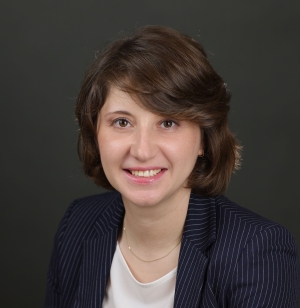
Olesya Vartanyan
Olesya Vartanyan is a conflict analyst with over 15 years of experience specializing in research, advocacy, and conflict resolution in the South Caucasus. Currently, she contributes to EVN Report as a columnist, analyzing regional dynamics in her column “Beyond Borders,” and serves as a fellow at the Democratic Security Institute, focusing on Eurasian security networks. She also authors articles and analysis for leading think tanks, including the Carnegie Endowment for International Peace, ISPI, and others.
Previously, Olesya worked with leading international organizations, including the International Crisis Group, Freedom House, and the OSCE. She conducted field investigations and authored influential reports on conflict zones such as Abkhazia, South Ossetia, and Nagorno-Karabakh, shaping policy recommendations for governments and international bodies while participating in confidential peace processes. Her efforts earned her the International Young Women’s Peace Award in 2024.
Before transitioning to conflict analysis, Olesya was an investigative journalist reporting on security issues in the South Caucasus. During the 2008 Russia-Georgia war, her field reporting contributed to The New York Times’groundbreaking investigations into the conflict’s origins. She also gained rare access to Abkhazia, covering crisis developments for Radio Free Europe/Radio Liberty and producing an award-winning radio documentary on missing persons from the Georgia-Abkhazia war.
Olesya holds advanced degrees in conflict studies and journalism from King’s College London and the Georgian Institute of Public Affairs.
